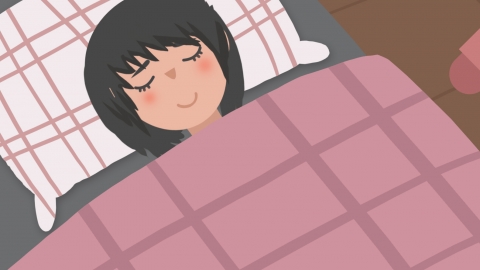What causes excessive sleepiness and vivid dreams?
Generally, excessive sleepiness and vivid dreaming may be caused by insufficient or irregular sleep, excessive mental stress, hypothyroidism, cerebral hypoperfusion, narcolepsy, and other factors. It is recommended to seek timely medical consultation and follow a physician's guidance regarding medication. Detailed explanations are as follows:

1. Insufficient or Irregular Sleep
Long-term late nights, irregular schedules, or inadequate sleep duration can disrupt the body's circadian rhythm, preventing the brain from sufficient rest and causing nervous system dysfunction, which leads to excessive daytime sleepiness. In a fatigued state, abnormal brain wave activity can easily cause vivid dreams. It is important to maintain regular sleeping habits and ensure 7-8 hours of adequate sleep daily.
2. Excessive Mental Stress
Stress from daily life or work can keep the brain in a prolonged state of tension, causing an imbalance in neurotransmitter secretion and impairing the brain's ability to regulate arousal and inhibition. This can result in daytime fatigue and sleepiness, while the brain remains active at night, leading to vivid dreams. It is advisable to learn stress-reduction techniques such as exercise, meditation, and listening to music. Work and life should be reasonably arranged to avoid excessive fatigue.
3. Hypothyroidism
Hypothyroidism may be caused by autoimmune damage, thyroid gland destruction, iodine deficiency, or other factors. Reduced thyroid hormone levels slow down bodily metabolism and decrease nervous system excitability, resulting in excessive sleepiness. During sleep, slowed brain metabolism can also lead to vivid dreams. Symptoms may also include cold intolerance, fatigue, dry skin, and constipation. Patients should take medications such as levothyroxine sodium tablets, prednisone acetate tablets, or dexamethasone acetate tablets under a physician's guidance.
4. Cerebral Hypoperfusion
Cerebral hypoperfusion is often caused by cerebral atherosclerosis, vascular stenosis, or increased blood viscosity. When the brain does not receive enough blood and oxygen, brain function is impaired, resulting in excessive sleepiness. Poor sleep quality under conditions of cerebral ischemia and hypoxia can also lead to vivid dreams. Additional symptoms may include dizziness, headache, and blurred vision. Treatment may involve medications such as aspirin enteric-coated tablets, atorvastatin calcium tablets, or nimodipine tablets, as recommended by a physician, to improve cerebral circulation and alleviate symptoms.
5. Narcolepsy
Narcolepsy may be related to genetic factors, environmental influences, and immune dysfunction. A reduction or functional impairment of orexin-producing neurons in the hypothalamus disrupts the sleep-wake regulatory mechanism, causing excessive daytime sleepiness. Disordered sleep architecture can also lead to vivid dreams. Other symptoms may include cataplexy, sleep paralysis, and hypnagogic hallucinations. Patients should follow medical advice to use medications such as methylphenidate hydrochloride extended-release tablets, modafinil tablets, or venlafaxine hydrochloride extended-release capsules to alleviate sleepiness, combined with psychotherapy and lifestyle adjustments.
In daily life, maintaining a good sleep environment—quiet, comfortable, dark, and at an appropriate temperature—is important. Avoid using electronic devices before bedtime to reduce blue light exposure.








